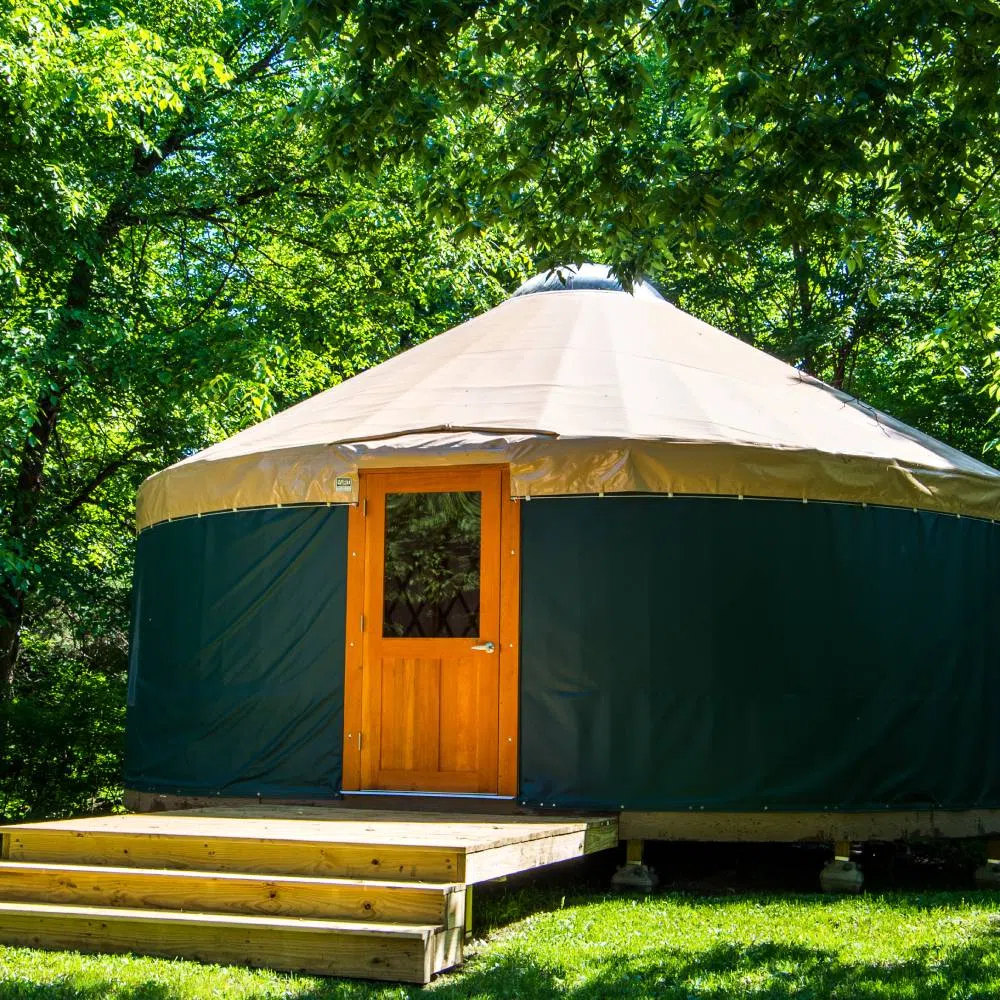Yurts offer a unique and rewarding way of life. However, choosing the right location can significantly influence your experience, comfort, and overall satisfaction. Here are some essential factors to consider when choosing a location for your yurt.
Climate and Weather
Yurts are designed to be sturdy and weather-resistant, but different climates require different considerations. For instance, if you’re in a region with heavy snowfall, you’ll need to ensure that your yurt is equipped to handle the weight of accumulated snow. This might involve reinforcing the roof structure or choosing a location that’s naturally shielded from high snow drifts.
Conversely, shade and ventilation become critical factors if you live in a hot, arid region. In such climates, placing your yurt near trees or other natural features that offer shade can help keep it cool and comfortable.
Accessibility
Another vital aspect to consider is accessibility. While the idea of a remote, off-grid yurt may seem desirable, remember to think practically about how easy it will be to reach your new home. Consider the condition of roads leading to the site, particularly during different seasons. Muddy or snow-covered roads can become impassable, making it difficult to access your yurt or for emergency services to reach you if needed. Being close to basic facilities such as grocery stores, hospitals, and schools can also significantly enhance your quality of life.
Noise Level
A frequently overlooked factor is the noise level of your chosen location. While many people opt for yurts to escape the hustle and bustle of urban life, different rural settings come with their own noise challenges. Choosing the right location will go a long way in helping you soundproof your yurt cabin. Spending a night or two in your prospective location can be beneficial to gauge the ambient noise levels and determine if they align with your expectations for peace and quiet.
Laws and Regulations
Lastly, think about the legal and zoning regulations in your area. Different regions have varying rules about what structures can be built and where. Some places have restrictions on non-traditional homes, like yurts, requiring permits or adherence to building codes. Researching these regulations beforehand can save you time, money, and potential legal headaches.
In conclusion, choosing the right location for your yurt involves carefully balancing practicalities and personal preferences. By considering these factors to consider when choosing a location for your yurt, you can find a spot that not only meets your needs but also enhances your yurt-living experience.




Comments